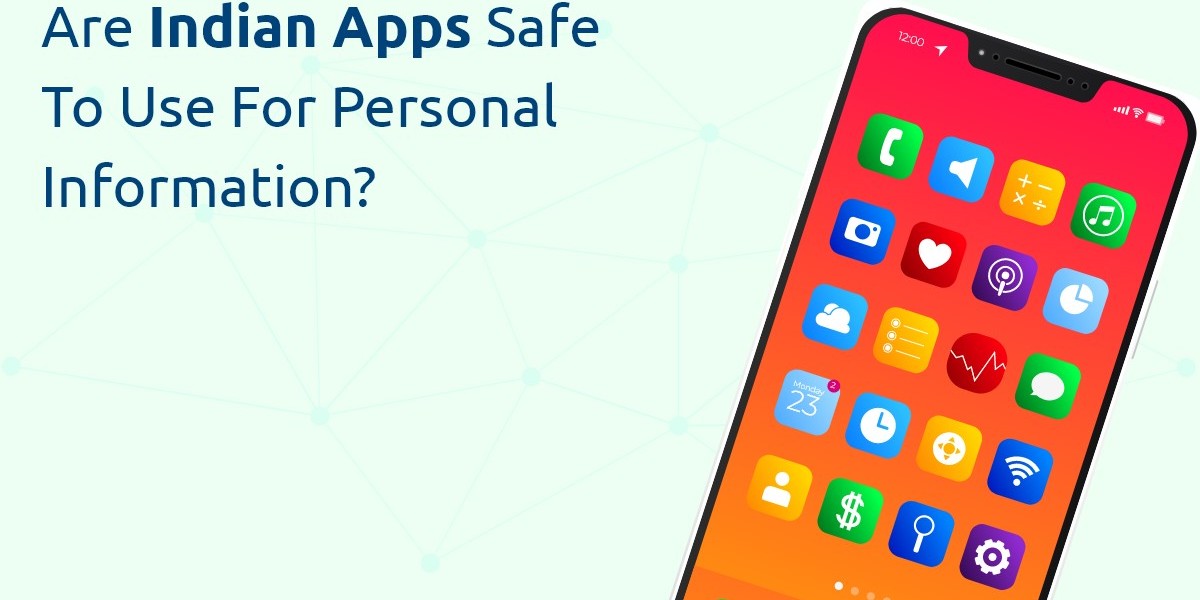In an era where digital applications are integral to daily life, concerns about data privacy and security are more relevant than ever. With the rise of Indian apps catering to various needs—from financial management and health tracking to entertainment and social networking—users often question the safety of their personal information. This article explores the safety of using Indian apps for personal data and offers insights into how users can protect themselves.
Understanding Data Privacy in Indian Apps
Data privacy is a critical aspect of app security, involving how personal information is collected, stored, and used. Indian apps, like their international counterparts, are required to adhere to privacy regulations and standards to ensure user data is protected. However, the effectiveness of these measures can vary based on the app’s policies and practices.
1. Regulatory Framework and Compliance
India has made strides in establishing a regulatory framework for data protection, though it is still evolving. The Information Technology (Reasonable Security Practices and Procedures and Sensitive Personal Data or Information) Rules, 2011, set forth guidelines for handling sensitive personal data, including privacy policies and security practices.
In addition to these rules, the Personal Data Protection Bill (PDPB) is anticipated to provide a more comprehensive framework for data protection in India. The bill emphasizes user consent, data security, and the rights of individuals regarding their data.
Despite these regulations, compliance and enforcement can vary among apps, especially with smaller or newer companies. Larger, established apps are generally more likely to adhere strictly to data protection standards due to their resources and reputational concerns.
2. Assessing App Security Features
When evaluating the safety of Indian apps, it’s important to consider their security features:
Encryption: Data encryption ensures that information is protected during transmission and storage. Look for apps that use encryption protocols (such as SSL/TLS) to safeguard your data from unauthorized access.
Two-Factor Authentication (2FA): 2FA adds an extra layer of security by requiring a second form of verification, such as a code sent to your phone, in addition to your password.
Data Storage and Access Controls: Check how the app stores your data and whether it employs access controls to limit who can view or manage your information.
3. Reviewing Privacy Policies
Before using an app, review its privacy policy to understand how your data will be used, shared, and protected. Key aspects to look for include:
Data Collection: What types of data are collected and why? Ensure that the app collects only the information necessary for its functionality.
Data Usage: How will your data be used? The policy should clearly outline how your information will be used and whether it will be shared with third parties.
Data Retention: How long will your data be stored? The policy should specify the duration of data retention and the conditions under which data will be deleted.
4. App Permissions and User Control
Apps often request various permissions, such as access to your camera, location, or contacts. It’s crucial to manage these permissions carefully:
Review Permissions: Regularly review and manage app permissions to ensure that apps have access only to the data they need. For example, a fitness app may need access to your location, but a social media app does not.
Adjust Settings: Use your device’s settings to control which apps have access to your personal information. Revoke permissions for apps that you no longer use or trust.
5. Staying Informed and Vigilant
Maintaining app security requires ongoing vigilance:
Update Apps Regularly: Keep your apps updated to benefit from the latest security patches and improvements. Updates often address vulnerabilities and enhance data protection.
Monitor Account Activity: Regularly check your account activity for any suspicious or unauthorized actions. Many apps provide activity logs or notifications for this purpose.
Be Cautious with Public Wi-Fi: Avoid accessing sensitive information over public Wi-Fi networks, as they can be less secure and more susceptible to interception.
Conclusion
While Indian apps offer valuable services and conveniences, their safety for handling personal information depends on various factors, including regulatory compliance, security features, privacy policies, and user practices. By understanding the regulatory framework, evaluating app security features, reviewing privacy policies, managing permissions, and staying vigilant, users can better protect their personal data and ensure a safer digital experience.
As data protection laws continue to evolve, it is essential for both users and app developers to remain informed and proactive in safeguarding personal information. Embrace the benefits of Indian apps with the confidence that comes from understanding and managing your data privacy effectively.







